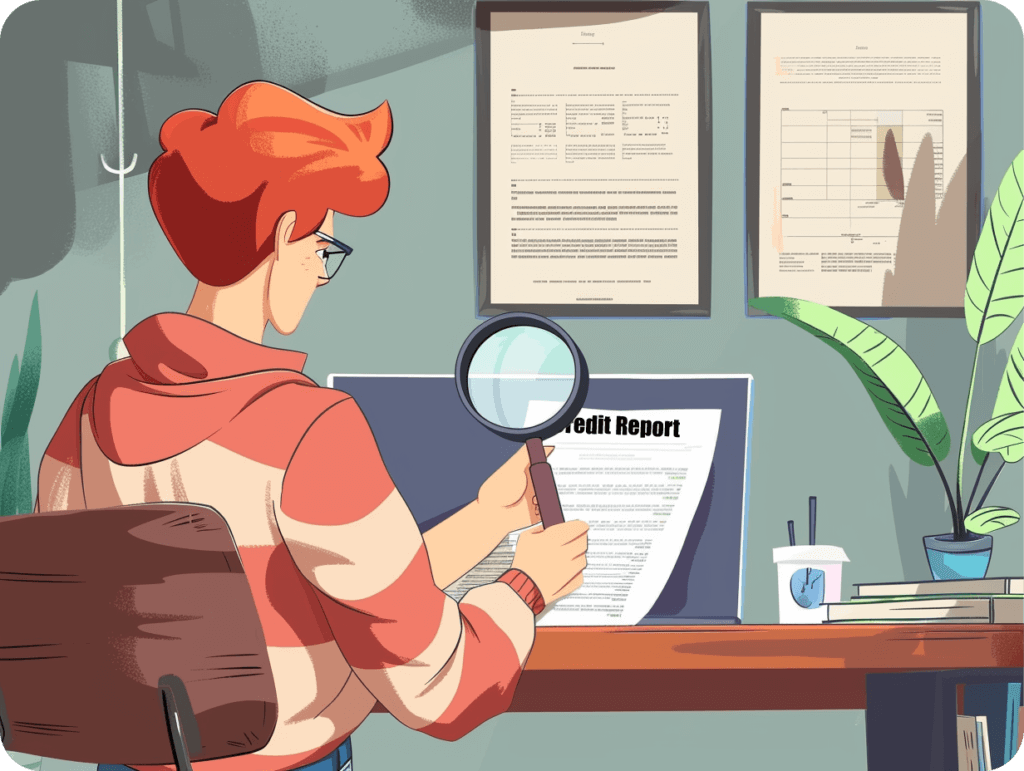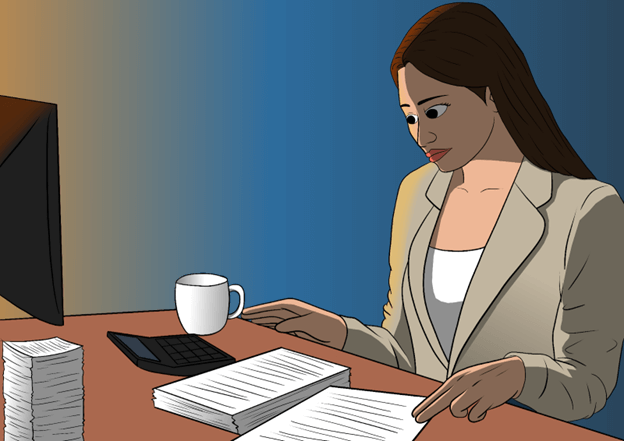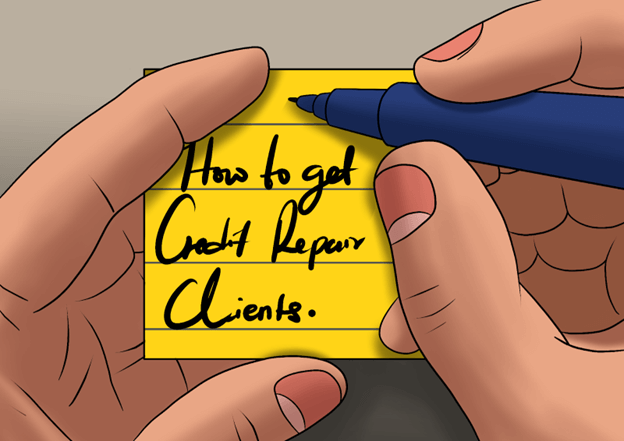- Blogs
- /
- How to Get Late Payments Removed From Credit Report in 3 Reliable Steps
How to Get Late Payments Removed From Credit Report in 3 Reliable Steps

Summary
How to get late payments removed from credit reports? You can send a goodwill letter to creditors, negotiate a pay-to-delete, or get legal help.
Did you know that late payments can have a lasting impact on your credit report? Even a single missed payment can lower your credit score and make it difficult to secure loans or credit in the future.
But the good news is that having a few late payments on your account doesn’t mean it’s the end. As it turns out, there are several reliable ways to eliminate these pesky late payments on your credit record and improve your credit score.
Today, we’ll show you actionable steps on how to get late payments removed from credit reports. Let’s dig in.
Key Takeaways
- Late payments can stay on your credit report for up to seven years and quickly damage your credit score.
- Watch out for inaccuracies on your credit report. Look for errors in your name, closed accounts showing as open, and accounts with a similar name to yours.
- The easiest way to remove inaccurate late payments on your credit report is by sending a dispute letter.
- Consider setting up automatic bill payment reminders. Enroll in autopay programs whenever possible to avoid late payments.
- Use mobile apps or online tools to track due dates so you don’t miss any payments.
- You can remove late payments from your credit report by sending a goodwill letter. You can also negotiate a pay-to-delete with your creditors. Plus, getting help from legal experts.
- You can get better results by personalizing your goodwill letter. Explain your circumstances to improve your chances of getting good results.
- Always protect yourself by getting your pay-to-delete agreement with the creditor in writing.
How to Get Late Payments Removed From Credit Reports
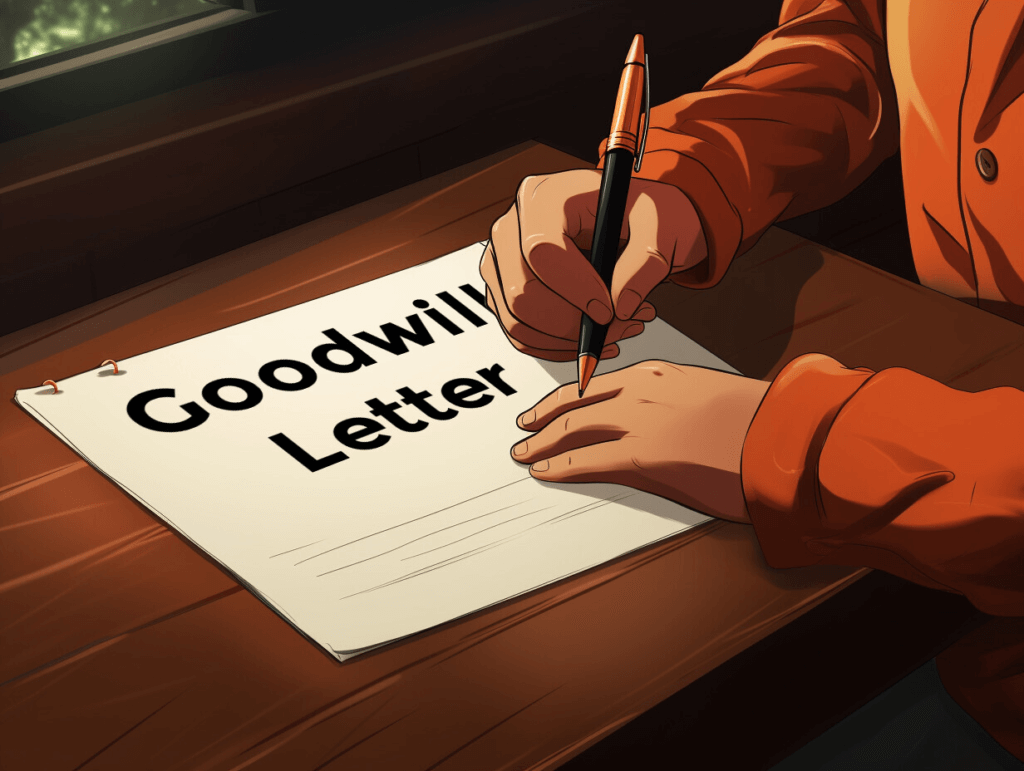
There are three solid ways to remove late payments from your account. You can send a goodwill letter, negotiate a pay-to-delete agreement, or get legal help.
Let’s explore these options.
Writing a Goodwill Letter
A goodwill letter is a written request to the creditor asking them to remove the late payment information from your credit report.
Writing a goodwill letter can be an effective strategy to get late payments off your credit report. To increase your chances of success, it’s essential to personalize your letter. Try to explain the circumstances behind the late payment, and show good faith.
Here’s what you can do:
1. Personalize Your Letter
Personalizing your goodwill letter is crucial because it shows your commitment to resolving the issue. Address the creditor by name. Include specific details about your situation. This makes your request more compelling.
By taking the time to tailor your letter to each creditor, you increase the likelihood of getting a positive response.
For example, if you experienced financial hardship due to a medical emergency, you can mention this in your letter. Explain how unexpected medical expenses affected your ability to make timely payments.
Sharing these specific details helps humanize your situation. It also makes it easier for creditors to empathize with your situation.
2. Explain Your Circumstances
Don’t stop with personalization; provide a clear explanation for why your payments were late. This way, your creditors can understand why it occurred.
If circumstances beyond your control led to the late payment, emphasize them in your letter. It doesn’t matter if you lost your job, got divorced, suffered a medical emergency, or experienced other significant life events.
You can strengthen your case by removing the late payment from your credit report. Explain these circumstances in detail. Emphasize that they were temporary or isolated incidents.
If you’re lucky, your creditors may see these explanations as valid reasons to remove the late payments from your credit report.
3. Demonstrating Good Faith
Showing good faith is another vital aspect of writing a successful goodwill letter. One way to do this is by making consistent, on-time payments after the late payment incident.
By demonstrating responsible financial behavior since then, you prove that the late payment was an isolated incident and not reflective of your overall creditworthiness.
Lenders often consider your recent payment history when evaluating removal requests. If they see a pattern of responsible financial behavior, it increases the likelihood that they will view your request favorably. Consistency is vital, so make on-time payments your goal moving forward.
Getting a Pay-to-Delete Agreement
If you have already paid off the late payments, you can try a ‘pay for delete’ deal with the person or company you owe money to. This means that you offer to pay the rest of what you owe in exchange for them taking away the late payments from your credit report.
So, here’s what you must do: first, ensure you have enough money to pay off the remaining balance. Then, reach out to the creditor or collection agency and explain that you want to settle your debt and remove the late payments from your credit report. You can do this by calling them, sending a letter, or emailing them.
When you talk to them, be polite and explain your situation. Tell them you will pay the total amount owed in exchange for them taking off the late payments from your credit report.
And this is where the negotiation part comes in—they might agree immediately or ask for a different amount or some other terms. If they agree to the ‘pay for delete’ deal, ensure you get everything in writing. This is crucial because it’ll protect you and the creditor or collection agency.
The agreement should include details like how much you’ll pay when you pay it and that they will remove the late payments from your credit report once they receive the payment. Once you have the agreement in writing, it’s time to make the payment.
Keep a payment record, like a receipt or confirmation number. Having that information will help if any issues arise in the future.
Using Legal Help
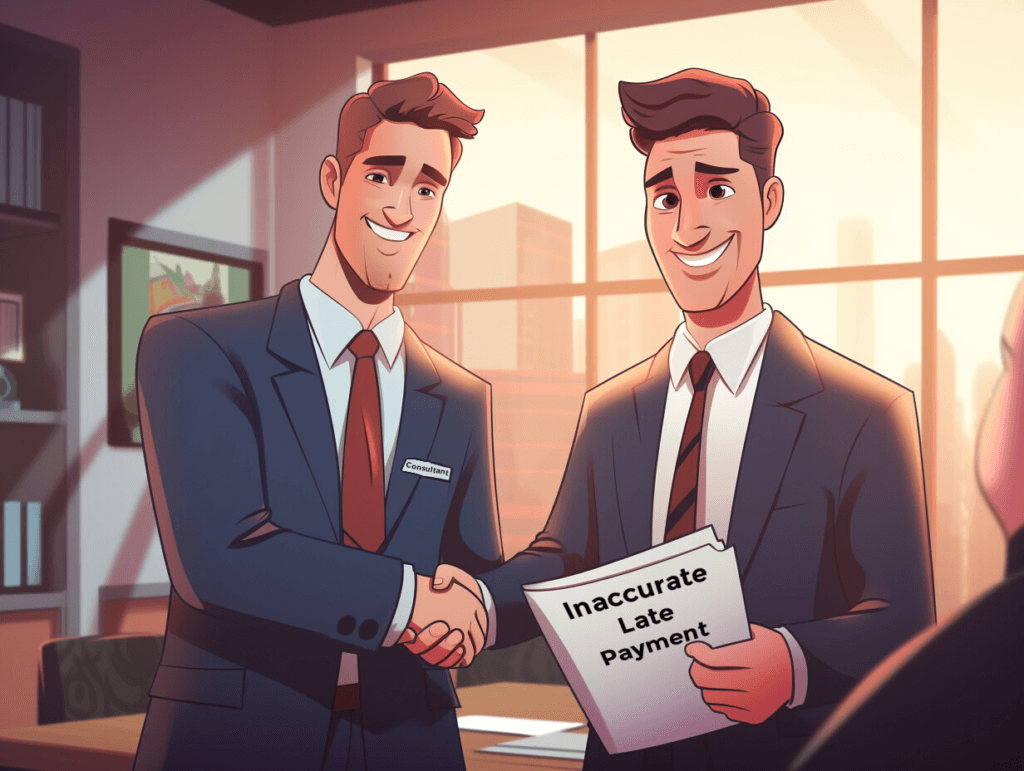
If writing a goodwill letter or getting a pay-to-delete agreement is too challenging, consider getting help from legal experts who can help you navigate this process smoothly.
Here’s what you need to do:
1. Get Professional Services
One option is to get help from reputable credit repair companies. These professionals have experience dealing with creditors and navigating the dispute process.
They can assist you in identifying any inaccuracies on your credit report and guide you through the necessary steps to have them removed.
When seeking professional assistance, it’s crucial to research reputable credit repair companies. Look for companies with a proven track record of success and positive customer reviews.
Avoid companies that promise to improve your credit score overnight or within unrealistic time frames.
2. Financial Advisors
Another valuable resource is consulting with a financial advisor. These professionals specialize in helping people improve their financial health and can provide personalized strategies based on your unique situation.
A financial advisor will review your credit report, analyze your financial habits, and advise on effectively addressing late payments.
They can also help you understand the impact of these late payments on your overall credit score and recommend steps to mitigate their influence.
Working with a financial advisor lets you make informed decisions about improving your credit health. They will educate you about various options, like debt consolidation or creating a budgeting plan that prioritizes paying off outstanding debts.
3. Legal Counsel
Consulting with a lawyer can sometimes be necessary to remove late payments from your credit report. Lawyers specializing in credit law can provide valuable assistance throughout the process.
Legal counsel will help you understand your rights when disputing inaccuracies on your credit report. They can guide you through the legal procedures of challenging late payment entries and negotiate with creditors on your behalf.
By leveraging their expertise, you can significantly increase the likelihood of successfully removing those unwanted late payments from your credit report.
Remember that hiring professional services or seeking advice from financial advisors or legal counsel should be done after careful consideration. So, evaluate your needs and circumstances before you decide which option is best for you.
What You Must Know About Late Payments
Late payments occur when you fall behind on your payment schedule. Late payments can lower your credit score and make it harder for you to obtain new credit.
The more late payments you have, the more severe the impact on your overall credit health, including your credit scores and credit reports.
If you consistently miss payment due dates or fall behind on multiple accounts, it can significantly damage your creditworthiness.
That’s because lenders may view you as a higher-risk borrower and may be less likely to approve you for a loan request or other lines of credit.
Late payments generally remain on your credit reports for seven years from the delinquency date. But, it’s vital to note that their impact lessens over time as they age on your report.
And that’s because as late payments age, they carry less weight in determining your current level of risk. Lenders tend to focus more on recent payment behavior when assessing your eligibility for new lines of credit.
Taking proactive steps to remove late payments from your record can shorten the duration they appear on your credit report.
How to Identify Inaccurate Late Payments
Yes, late payments can devastate your credit score, but it’s essential to know that sometimes, not all of them are accurate. There’s always the chance of inaccurate records of late payments showing up on your credit report.
That’s why regularly monitoring your credit report is crucial to identifying inaccurate late payments.
Here’s what you should look for:
- Errors in your name, address, or phone number.
- Accounts that belong to another person with similar names to yours.
- Closed accounts are still showing as open.
- Accounts that are inaccurately reported as open.
- The same debt is getting listed twice.
- Accounts with an incorrect balance.
- Incorrect date of last payments.
Keeping a close eye on your credit report can help you detect late payments early and take prompt action to address them. So, focus on identifying these inaccuracies early because it’ll give you more time to dispute them.
How the Dispute Process Works
To begin the dispute process, you’ll need to challenge the accuracy of the late payment listings with the credit bureaus. This involves notifying the credit reporting agencies of the inaccurate information in your credit reports.
You can initiate a dispute for your credit reports online, by mail, or through the bureau’s mobile app.
Provide all required supporting documentation when disputing late payment entries on credit reports.
This may include proof of timely payments or any other evidence that supports your claim of inaccuracies. The more evidence you provide, the stronger your case becomes.
Remember, resolving disputes with credit bureaus takes time and patience. The credit bureaus are legally required to investigate your claims within 30 days and provide a response.
During this time, they’ll contact the creditor responsible for reporting the late payment and request verification of its accuracy.
If the investigation reveals that the late payment was inaccurate or cannot be verified by the creditor, they’ll remove it from your credit report. Once removed, this negative information will no longer impact your credit score or ability to obtain credit.
In some cases, if you cannot resolve disputes directly with the credit bureaus, you should consider getting help from a reputable credit repair company.
These agencies have a solid track record of helping people navigate complex credit issues. Plus, they’ll guide you through the dispute process.
Remember that maintaining accurate records of all correspondence related to these disputes is essential. This includes keeping copies of letters, emails, and other communication with credit bureaus or creditors.
Here’s How to Prevent Future Late Payments
Late payments can hurt your credit report and overall financial health. To avoid this, it’s essential to prevent future late payments.
Here are some practical strategies you can use:
Learn Budgeting Techniques
Implementing effective budgeting techniques is crucial for managing your finances efficiently. By creating a budget, you can allocate funds for timely bill payments and avoid the risk of late payments. You can explore various budgeting methods to find one that suits your needs.
For example, the envelope system allocates cash into different envelopes for specific expenses, like groceries and utility bills. This method helps ensure that you have enough money to cover your bills when they are due.
Another popular budgeting technique is the 50/30/20 rule, where 50% of your income goes towards necessities, 30% towards wants, and 20% towards savings or debt repayment. Following this rule allows you to prioritize bill payments within your budget.
Use Automated Payments
Setting up automated payments is an excellent way to ensure your bills are paid on time without manual intervention.
By authorizing automatic withdrawals from your bank account or using online payment platforms, you can eliminate the risk of forgetting due dates and incurring late fees.
Automated payments also contribute to a positive payment history. Lenders and creditors view consistent, on-time payments favorably when assessing creditworthiness. This convenient feature is one of the best ways to avoid late fees and strengthen your credit profile over time.
Perform Regular Account Reviews
Regularly reviewing your accounts is essential for identifying potential issues, including late payments. You can promptly address problems and take corrective action by monitoring account activity regularly.
Keep an eye out for billing errors or discrepancies that may result in missed or delayed payments. If you notice any issues with a particular lender or service provider, contact them immediately to rectify the situation and prevent late payments.
Being proactive with account reviews demonstrates your commitment to maintaining a healthy credit profile. It lets you catch any potential problems early on and take the necessary steps to avoid late payments.

Start Cleaning Your Credit Report
Late payments are one of the biggest killers of a good credit score, and knowing how to get late payments removed from credit reports is a vital skill that makes fixing your credit score easy.
So now that you’ve learned how to avoid and remove late payments from your credit score, you start sending goodwill letters to request their removal, disputing inaccurate late payments on your credit report, and negotiating pay-to-delete agreements.
Also, remember to regularly monitor your credit report and take steps to prevent fraudulent cases of late payments in the future. Your credit score is crucial to your financial well-being, so don’t let late payments hold you back.
FAQs
1. How long do late payments stay on your credit report?
Late payments can stay on your credit report for up to seven years from the missed payment date. But, their impact lessens over time as newer information takes precedence. Making timely payments moving forward is crucial to improve your credit score.
2. Can I remove accurate late payments from my credit report?
While it may be challenging, you can remove accurate late payments from your credit report. Start by writing a goodwill letter to your creditor, explaining the circumstances, and requesting removal.
If that doesn’t work, seek assistance from a reputable credit repair agency or consider disputing any errors on your report.
3. How can I identify inaccurate late payments on my credit report?
Carefully review your credit report for any inaccuracies in the reported late payments. Look for incorrect dates, amounts, or accounts you don’t recognize.
If you find any discrepancies, gather supporting documents and contact the credit bureaus to dispute those entries.
4. What should I include in a goodwill letter?
When writing a goodwill letter, be sincere and concise. Explain why you had late payments and provide evidence of improved financial responsibility. Show regret and emphasize how important it is for you to have those late payments removed from your credit report.
5. How can I protect my credit score from future late payments?
To safeguard your credit score against future late payments, set up automatic bill payment reminders or enroll in autopay programs whenever possible.
Create a budget to ensure you can meet all financial obligations promptly. Also, consider using mobile apps or online tools to help you keep track of your due dates and manage expenses efficiently.
Our Latest Blogs:
FREE Strategy Session to Fix Your Credit Blogs / Sometimes, our credit scores aren’t as high as we want....

ThisIsJohnWilliams

ThisIsJohnWilliams
FREE Strategy Session to Fix Your Credit Blogs / Financial stability is the cornerstone of well-being, so understanding the...

ThisIsJohnWilliams
FREE Strategy Session to Fix Your Credit Blogs / Facebook Twitter Linkedin Instagram Share Summary Your credit score is...

ThisIsJohnWilliams
FREE Strategy Session to Fix Your Credit Blogs / Facebook Twitter Linkedin Instagram Share Summary Life can be unpredictable...

ThisIsJohnWilliams
FREE Strategy Session to Fix Your Credit Blogs / As a company involved in credit repair, you understand that...


